Joe Bussard – Frederick, MD
The King of 78s – Joe Bussard
Text: Marc Minsker & Eilon Paz | Photos: Eilon Paz
“Jazz music ended in 1933, with the last recordings of worth being Clarence Williams in 1932. Jimmy Murphy’s records (six titles actually) that were recorded in Trashville, oops, I mean Nashville, were the last real recordings.”
ew people have devoted as much of their life to records as Joe Bussard has.
Born in 1936 in Frederick, Maryland, he started playing records on his parents’ phonograph and by the end of World War II, he had the collecting bug. During the 1950s, 60s, and 70s, he led thousands of record expeditions through the mid-Atlantic region and the South, looking for 78s of jazz, blues, ethnic and down-home/bluegrass music. These expeditions went well beyond the typical digger routes of mining thrift stores or finding out-of-the way record stores. For Joe, record collecting has always meant driving into the backwoods, parking your car, and walking door-to-door asking the locals if they had any records in the house and, if so, would they be willing to sell them. It is not an exaggeration to say that over 50,000 records have passed through Joe’s hands or circulated through his collection.
In addition to his status as a collector, Joe is single-handedly responsible for the creation and operation of Fonotone Records, an independent record label responsible for documenting and preserving bluegrass, folk and blues music of the 1950s,1960s and 1970s (including the first recordings of guitarist John Fahey). A musician himself, Joe performed on guitar, banjo and vocals with his group Jolly Joe and His Jug Band, as well as performing and recording with many others. He has also been hosting radio programs since 1956, when he set up his own pirate radio station out of his home.
Joe Bussard is the subject of the excellent documentary film by Edward Gillian, “Desperate Man Blues” (2003).
Q: Your Full name, age, where you live?
A: Joseph Bussard, 76. Frederick, MD.
Q: What was your first album? How did you get it? At what age? Can you describe that feeling? Do you still have it?
A: The first 78 that I went out and found was….God, you’re going back 50 years or so! That’s almost impossible to remember. I know that I found Gene Autrey records early on but it would probably be Jimmie Rodgers. When I heard him, that about did it. I was hooked.
Q: What prompted you to start collecting? What age did you start?
A: I had a phonograph at my house (still have it) and was playing records when I was six years old. Neighbors would bring records by the house that I grew up in, on Fairview Avenue in Frederick.
Q: What was your Initial interest in music? Did you have any influence from your family? Or perhaps your best friend ?
A: Not really. My family didn’t have much interest in it. I listened to the radio a lot and our local station, WFMD, used to have live stuff…mostly bluegrass. I got more deep into music when I got my driver’s license, hitting up houses, going door to door. In those days a lot of the roads around Frederick were still dirt, and I’d drive up and down every hollow, throughout the County. Learned everyday about some new musician.
Q: are you following any specific genre in your collection? Or maybe pressing years?
A: I got all types of music: everything from string bands and southern artists to Country blues and early jazz. Gospel and Bluegrass. In terms of pressing years, the best stuff is from 1929 to 1933, especially 1931, 1932, 1933. Nobody had any money, sales were low. So that what makes the records so scarce. And people didn’t take care of them with those old damn wind-ups. Those needles destroyed the grooves. That’s what happened to all those Charlie Patton records.
Jazz music ended in 1933, with the last recordings of worth being Clarence Williams in 1932. Also Benny Moten’s last recordings (he died in 1935). The problem was the sound changed in 1933; the tone was gone. When they came back with .25 cent records, the sound had changed for good. It wasn’t the same. Lost that beautiful tone.
In 1955, country music had its last gasp. Jimmy Murphy’s records (six titles actually) that were recorded in Trashville, oops, I mean Nashville, were the last real recordings. Songs like “Here Kitty Kitt,” “Looking for a Mustard Patch,” and “Baboon Boogie.” It all changed after that.
Q: Is there a music genre that you avoid?
A: Rock-n- roll. Period. Any of it. Hate it. Worse thing that happened to music. Hurt all types of music. They took blues and ruined it. It’s the cancer of music….ate into everything. Killed Country music, that’s for sure.
Q: A lot of people would claim the complete opposite. that Rock-n-Roll re invented and recharged music. What is it about rock-n-roll that annoys you so much?
A: Don’t like. Just my personal taste. Don’t like the sound of it, the meaning of it…doesn’t promote anything beautiful or meaningful. Idiotic noise, in my opinion.
Q: So artist like Miles Davis, John Coltrane don’t deserve your time?
A: Oh my god, you gotta be kidding me. None of that music moves me.
Q: Do you know what’s an MP3? Do you know that people can share songs today over the internet, download music for free, listen to it from their phones. what do you think of that?
A: A computer isn’t? I don’t have anything like that. Most of the music they’re getting for free ain’t worth a penny anyhow.
Q: A lot of young people are going back to vinyl records these days. they give up on digital music format and go back to this old beloved medium. what do you think is the reason to that?
A: It’s all about tone…It has a mild tone and is much more mellow than this new digital music, which I can’t stand to listen.
Q: How many albums in your collection? can you give a break down?
A: Let’s get this straight: they’re not “albums”…they’re singles. 78s. I’ve got a little over 15,000 records left these days. Blues, jazz, bluegrass…all types.
Q: you’re famous for your 78 RPM collection. can you tell us why do you concentrate in this medium?
A: Cause that’s where the music is…where else you gonna find it? The greatest music ever recorded was on 78s. My wife liked Bluegrass and so she had 45s and a lot of LPs. I have LPs; they’re alright…there’s a lot of good stuff on those. But the 78s contain the best stuff, a lot of which never made it to LPs.
Q: How do you organize your collection?
A: By sections and different music styles. But in terms of the overall organization of records, only I know where everything is.
Q: Tell me a useful record storage / shelving tip!
A: Well, of course, store them on the edge. Back in the day some people would stack ‘em. Use heavy jackets for 78s. In the early 1960s, I got the last thousand that this company Cohost had in their warehouse: box of 1000 paper jackets for $30. Still have a box of those down in my basement.
Q: What do you look for in a record?
A: I guess who’s on it, the music that’s on it, the rarity, the condition.
Q: What’s your partners’ reaction to this obsession?
A: My wife never paid much attention to it. She liked a lot of the stuff I had. Sure she’d ask me “Why you wasting your time on that? Going down there and buying all those records?” But in the end, she liked music.
Q: Name some golden grails from your collecting history.
A: Any of the Black Patties that I found over the years (12 of them). That label put out 55 titles but some of those are real stinkers. They made records in 1927 for seven months. That’s it. Sold by mail out of Richmond, Indiana. I also treasure my Charlie Patton records on Paramount and my pristine copy of Mississippi John Hurt’s “Frankie” on Okeh. Let’s see… Gitfiddle Jim’s “Paddlin Blues” on Victor – probably the nicest copy in existence. Jimmie Rodgers “Picture Disc #12” – that one came out on Victor after his death, a special issue for collectors.
Q: Tell more about that Robert Johnson album here. Why did you pick this one up? what’s so special about it? (on the title is: Test Pressing: Phonograph Blues)
A: Well I got in a collection back in the early 1960s. It’s what they call a “Shellac test.” The guy wanted $100 for the whole collection of singles– a lot of money in those times. At that time, Robert Johnson wasn’t very famous.
Q: How do you get your hands on these rarities?
A: Spent most of my life looking for records, knocking on doors, digging through junk shops, going into the hills.
Q: But why? what is it about those records that made you spend all your life running after them?
A: Music. Powerful music. Couldn’t get them nowheres else so went out looking for it. Spent my life learning about all types of music and digging deeper into the traditions of country blues, jazz, gospel. But now I’m getting up there in terms of age and am considering selling my whole collection. What good is it going to do me once I’m gone?
Q: Which album makes you wanna jump and dance?
A: That’s hard – lots of ‘em! “New Goofy Dust Rag” by Benny Motten in 1923 on Victor.
Q: Is there a specific musical instrument that attracts you when listening to music?
A: Slide guitar and banjo. Those are my favorites.
Q: Any instrument that you just can’t listen to??
A: Close up? Those damn drums. I hate them. They were ok in the 1920s ‘cause they were in the back ground. Then they brought them up in the mix. Horrible.
Q: Tell me about a dollar bin record you would never part with!
A: My Black Patti records – I paid $10 for the whole bag. Down near War, WV, way back up in the woods. I say near War because I found a record in that bunch that had a “War Pharmacy” sticker on it. That was in the 1970s.
Q: what about digging buddies? Do you share or you go solo?
A: I always had somebody to go along with. Somebody watch the car while I went up to knock on the doors. I had another guy who’d knock on doors with me and if he found anything, he’d holler for me. Oscar Morris, who played harmonica in my band Jolly Joe, used to go with me. He’s dead now.
Q: Tell me a particularly sad record story!
A: There’s one that still brings tears to my eyes. This was in the 1960s. We were driving north out of Bluefield, WV, and came to this real little town. The main street was no more than five feet wide but they had a few shops. There was an S.S. Kresge Five and Dime Store with the original sign from the 1920s so we parked the car up on the sidewalk and went in. You wouldn’t believe the mess! Broken records all over the floor. Apparently they’d pulled bunches of them off the shelves to throw away –when nobody cared about records anymore – and they dropped all types of records on the floor. I saw Robert Johnson and Carter Family records that probably had never been played cracked and scattered on the floor with people just walking all over them. But this guy at the only filling station gave me a tip. We then went into the hardware store across the street, and oh my God! This guy had all these records upstairs, dealer stock, and he’d stopped selling them during the depression and never got back into it. An entire floor of mostly unplayed 78s. Jesus, I must have gotten about 2000 really choice records from the guy. Paid him $100.
If it I hadn’t found that hardware store after the tragedy at that five and dime, I might-a gone out and committed suicide! (laughs)
Q: Tell me about a record you still regret not picking up?
A: I don’t have any.
Q: Who has the toughest record collection that you have ever seen?
A: There are several guys like me that have been around for 50+ years, like Rich Nevins in New York. Dave Freeman down in Virginia, too, though his collection is mostly country.
Q: What do you see happening to your collection after you leave the planet?
A: Auction it off and let the collectors enjoy it. I’ve seen collections go to libraries and colleges and the records just get stuffed into storage. Nobody ever looks at them, listens to them. It’s damn shame.
Q: Any words of advice to the young generation who’s getting into music and records?
A: Well, there’s nothing today coming out that worth’s anything. Kids are all brainwashed today listening to that electronic garbage. Sure there’s a few kids interested in the old music. And they’d have to pay a hell of a price to get into that music. These rare records disappear into collections and into black holes. Never see them again.
You can write Joe an email, and perhaps he’ll make you a mix tape of some of your favorite old time artist (just don’t mention Miles Davis :-))
Joesvintage78@aol.com
Huge thanks to Marc Minsker who made the initial connection Joe and eventually co-wrote this feature.
Marc Minsker: When not working as an assistant principal at a high school outside of Washington, DC, Marc Minsker is collecting records, interviews, and research in preparation for his documentary-in-progress END OF AN EAR. His first documentary, JOHN FAHEY: THE LEGACY OF BLIND JOE DEATH, debuted at the Takoma Park Film Festival in 2010. He lives with his wife and two boys in Bethesda, MD.

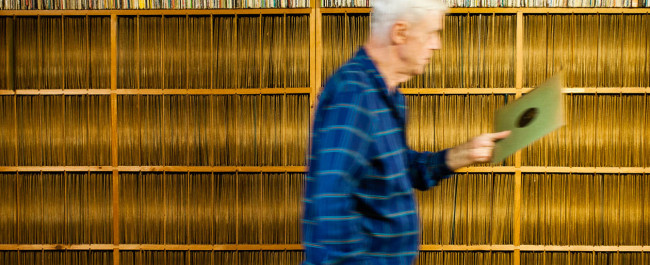
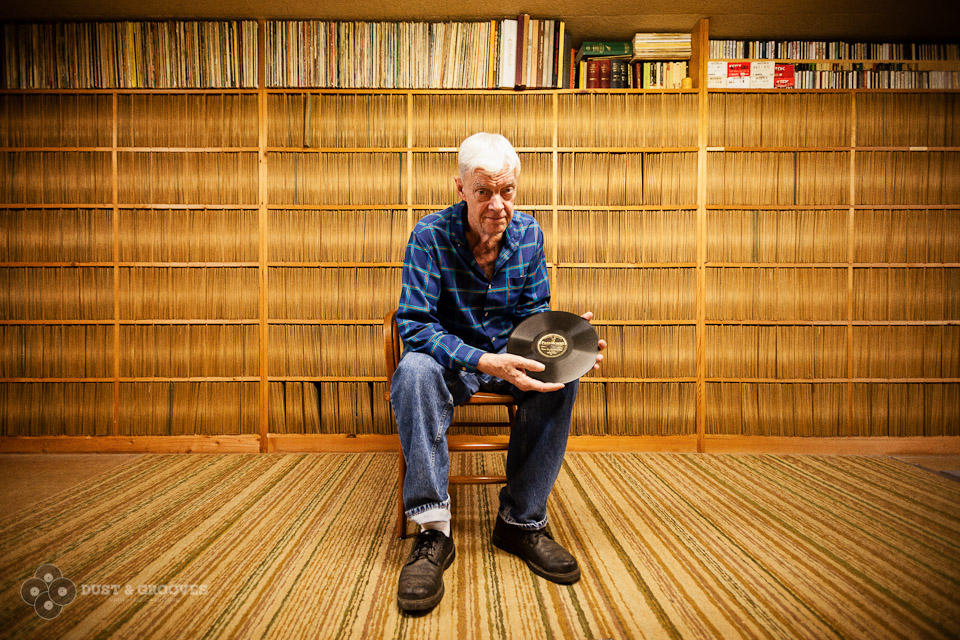
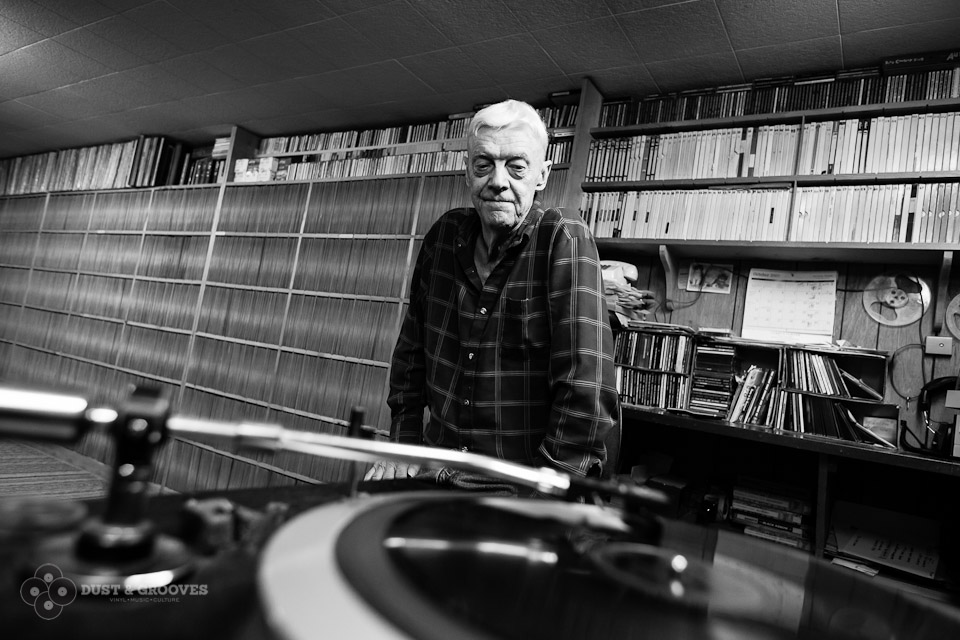


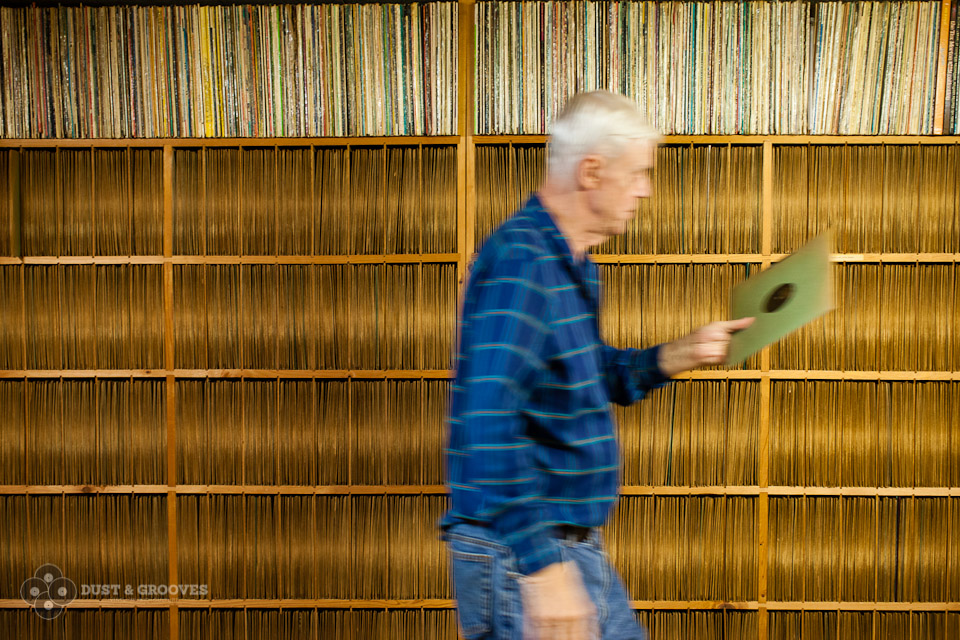

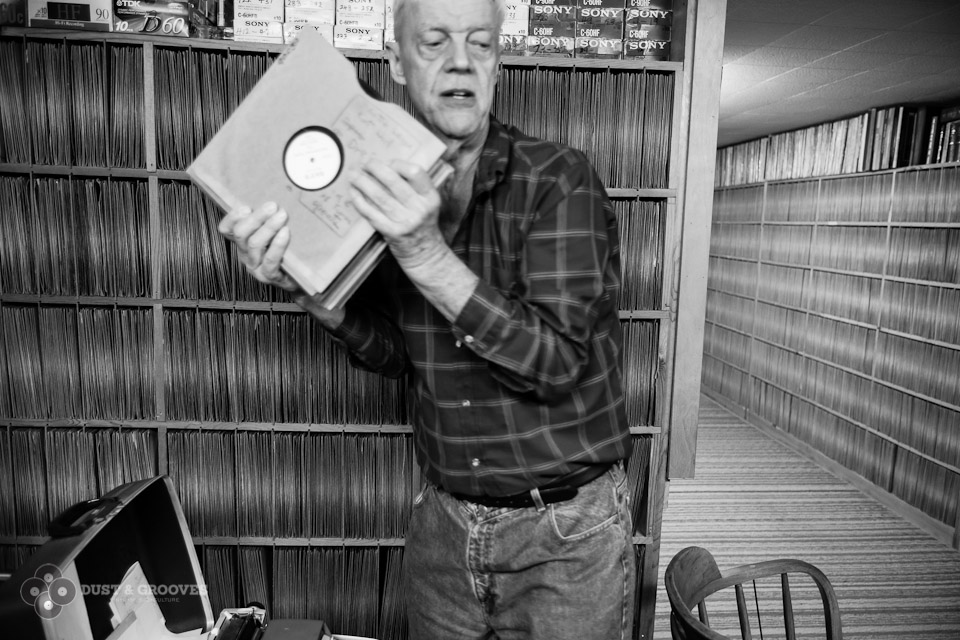
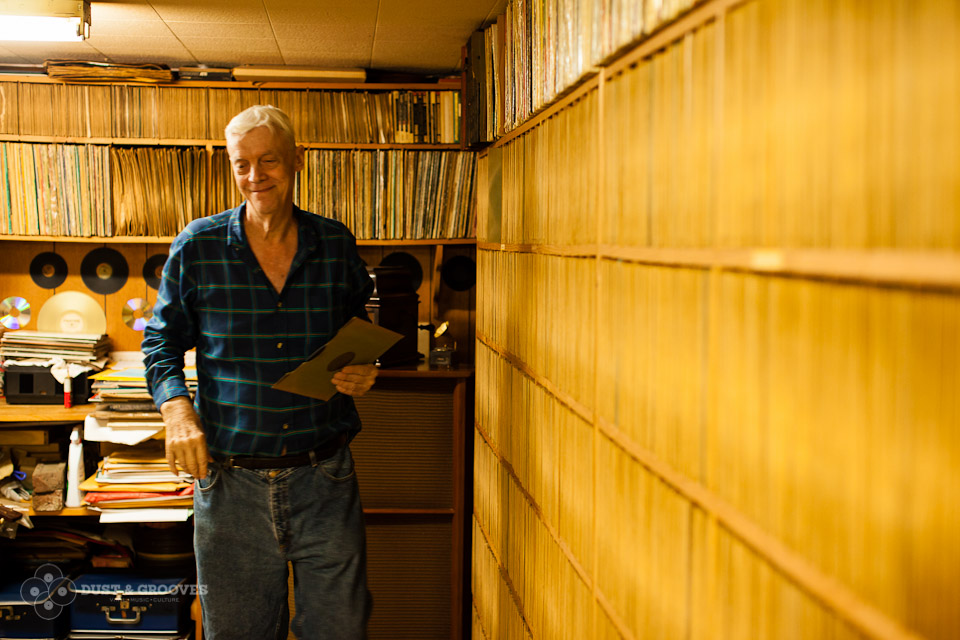

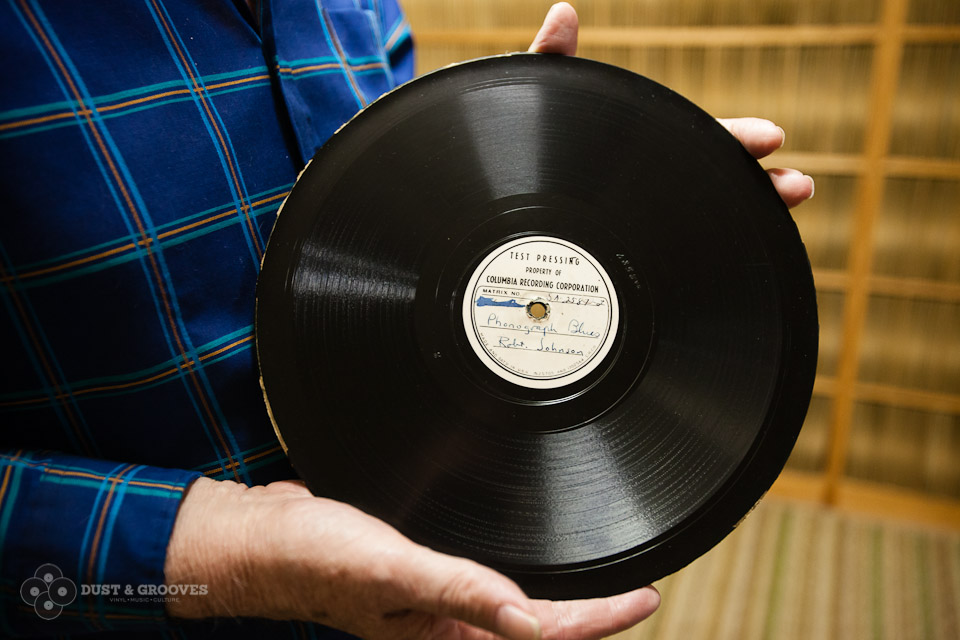

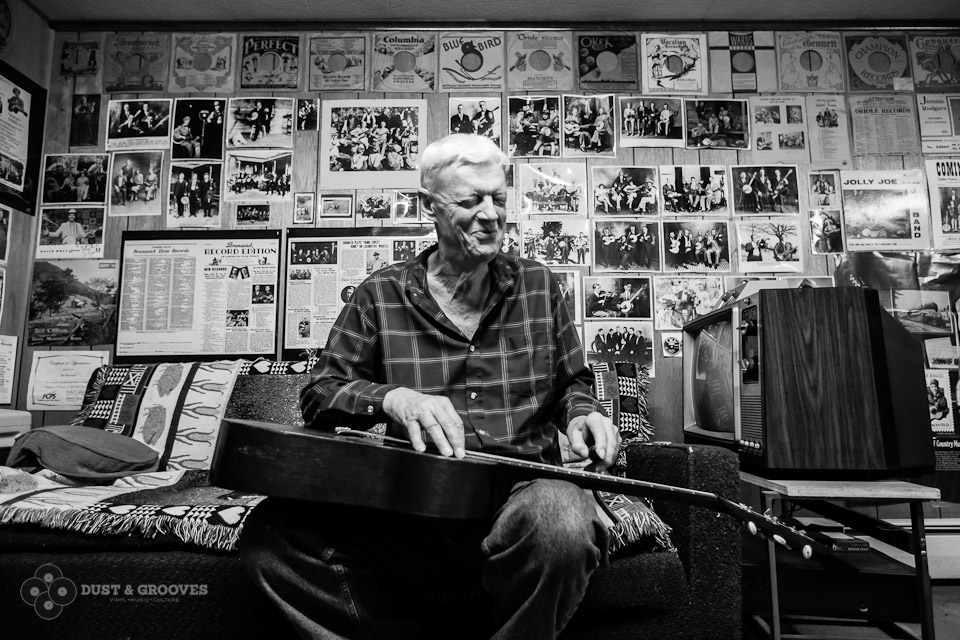
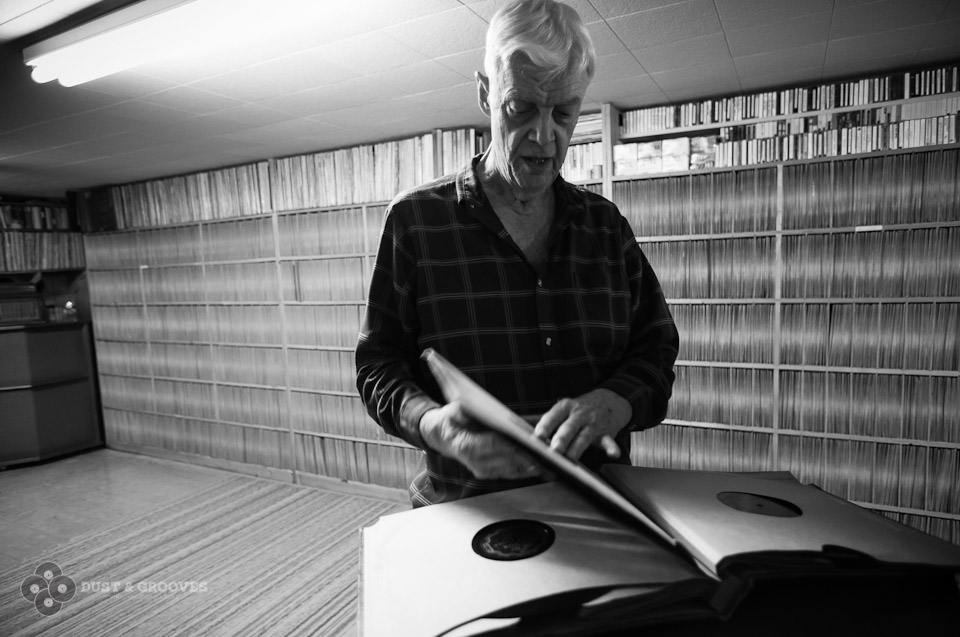
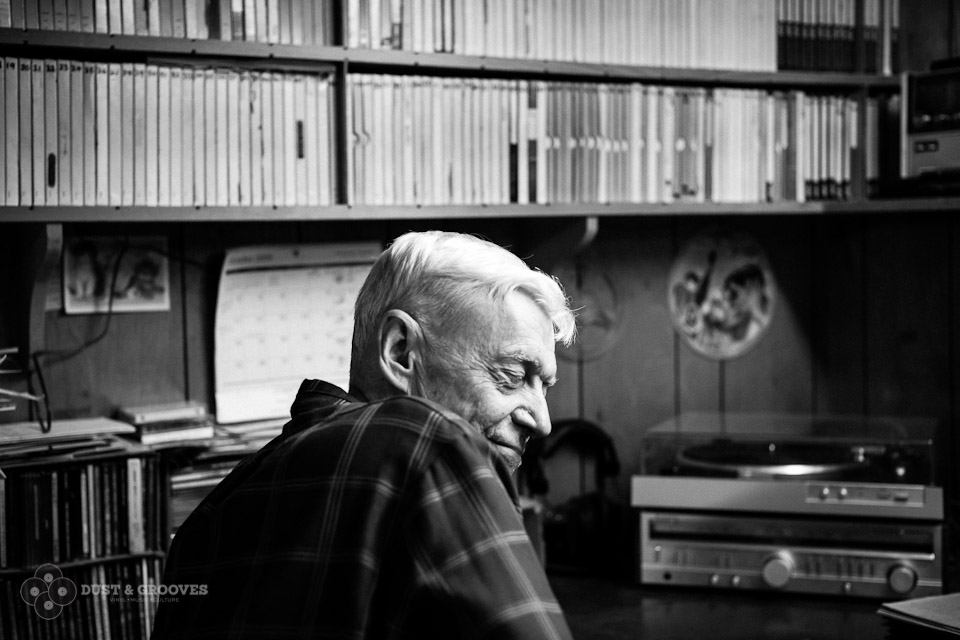
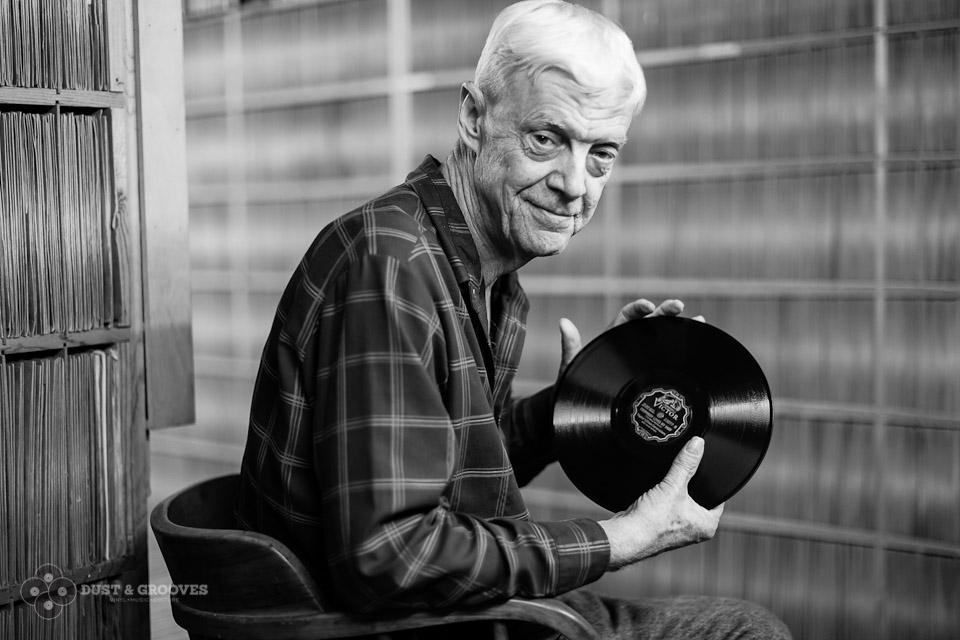
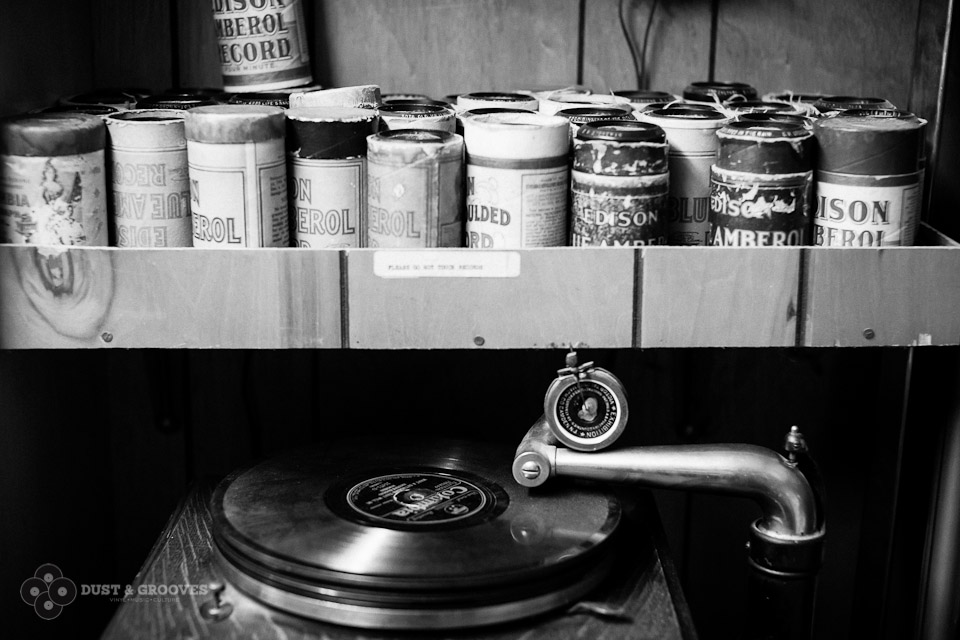
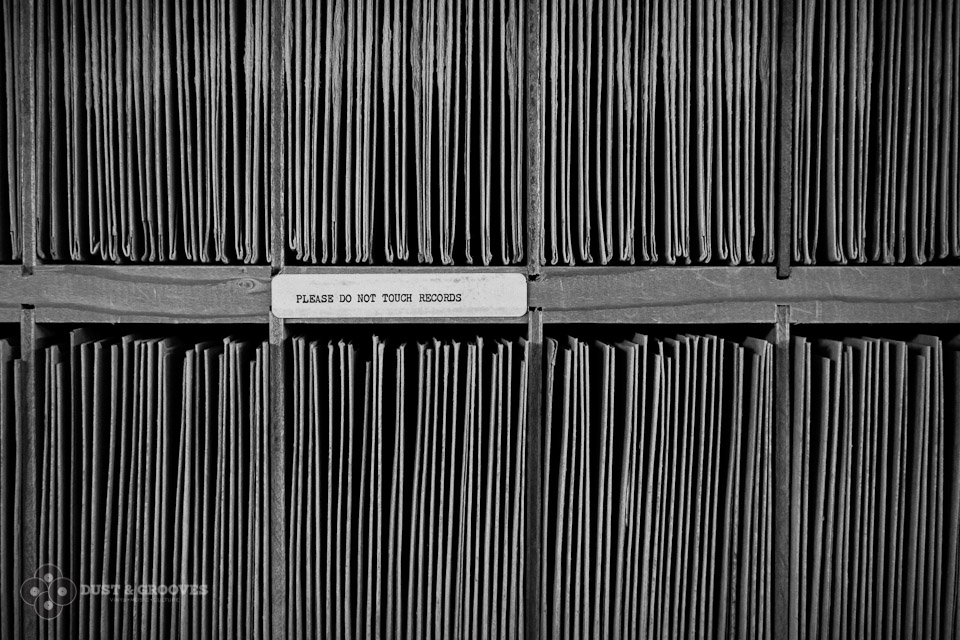
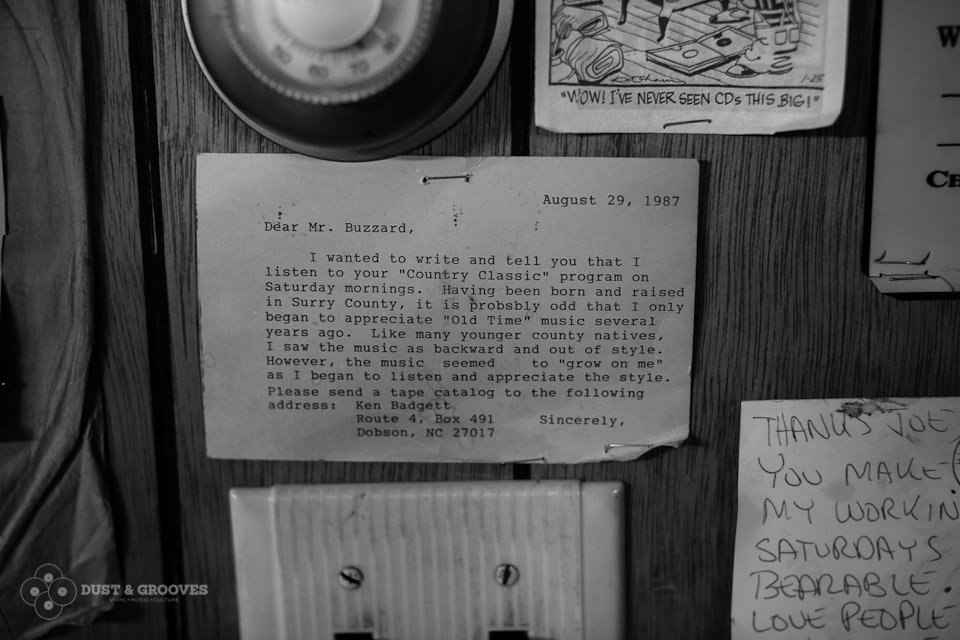
Pingback : Joe Bussard for Dust & Grooves (Mix)
Joe also DJs a WONDERFUL weekly podcast that’s available on iTunes (search “Joe Bussard’s Country Classics”).
Thanks for that
A wonderful podcast, indeed. I’m wondering, is there a site or page where *all* of Joe’s “CC” broadcasts are available, i.e. before 2015? I’ve found all the broadcasts from 2015, as well as a few earlier broadcasts (on “Sound Cloud” and “Dust-to-Digital”, for example), but I’d love to find a page where they are *ALL* accessible…
Joe does shows for several stations including WREK Atlanta, WPAQ Mount Airy NC, WBCM Bristol, and WHUS Storrs CT. I am responsible for Joe’s WHUS show that started in October 2015 and has accumulated more than 70 shows as of March 2017. All those shows are archived on Soundcloud with playlists attached. Do a search on Soundcloud for “Joe Bussard WHUS” to get all of them.
Pingback : Toby Keith's New Album Due in November; Stream Holy Ghost Tent Revival; Download Free Charlie Peacock Sampler - Engine 145
Marc, This story is more than a documentary. You have created a work of art that brings to life the tireless passion of a great yet still obscure man.This project with Joe’s comments need to be presented to Smithsonian Folkways. If they can do it for Moses Asch, they can certainly do it for Joe Bussard. I would be happy and honored to do the introductions.Again, congrats to you and Eilon and Eran for this fine example of photo journalism!
David,
I would like to discuss this further.
email me please.
eilon@162.144.178.167
Q: So artist like Miles Davis, John Coltrane don’t deserve your time?
A: Oh my god, you gotta be kidding me. None of that music moves me.
Wow, this just made me lose all respect for Joe. I can understand the old timer not liking rock & roll, but Miles Davis? John Coltrane? Jazz ended in 1933? Jazz was just getting started in 1933, this geezer has no idea what he is talking about. Jazz had just begun to morph out of the ragtime blues shell it was contained in and the 50s and 60s were some of the greatest times for Jazz with artists like Sun Ra, Charlie Parker, and Thelonious Monk creating some of the most innovative and complex melodic structures known to mankind. Enjoy being stuck in your old timey world Joe, I’ll be busy grooving to Bitches Brew.
I agree, Mike – it’s fine to say that IN YOUR OPINION, jazz ended in 1933, but not to issue it as a factual statement with no basis other than personal taste.
Please, please gentlemen all. I’m very sure there is music enough to go around. Let’s be tolerant of another’s choice of genre. It’s all good!
How do I get in his will????
🙂
Pingback : OPINIONS, PERCEPTIONS, BELIEFS, and “THE LAST JAZZ RECORD” | JAZZ LIVES
The article about Joe Bussard is the result of an interview where Joe answered questions posed by the interviewer(s). Of course, Joe is expressing his opinion in some of his answers. Do you expect Joe to qualify each of his answers with “in my opinion”? I do not. I read Joe’s responses and I figure out that some of what he says is factual information “I got all types of music: everything from string bands and southern artists to Country blues and early jazz. Gospel and Bluegrass.” and some is opinion “the best stuff is from 1929 to 1933, especially 1931, 1932, 1933.” “Jazz music ended in 1933.” Of course, his opinion. Is there any doubt? In fact, in other parts of the interview he specifies that what he says is his personal taste, his opinion. Look at these Q & A.
Q: A lot of people would claim the complete opposite. that Rock-n-Roll re invented and recharged music. What is it about rock-n-roll that annoys you so much?
A: Don’t like. Just my personal taste. Don’t like the sound of it, the meaning of it…doesn’t promote anything beautiful or meaningful. Idiotic noise, in my opinion.
Q: So artist like Miles Davis, John Coltrane don’t deserve your time?
A: Oh my god, you gotta be kidding me. None of that music moves me.
Nothing wrong with strong opinions, likes and dislikes.
Actually, Joe has moved FORWARD in his appreciation of jazz. The last time we talked on the subject, his nominee for the LAST “real” jazz record was “Wabash Blues” / “Everybody Loves My Baby” by Taylor’s Dixie Serenaders, recorded May 23rd, 1931 in Charlotte, NC (Victor 23277). So now some records from 1932 and ’33 are included in the Bussard Canon. That’s progress of a sort.
But I know exactly what he’s talking about, and here it is: That Taylor’s record truly is the last of a certain kind of jazz – the unfiltered, 120-proof, stomping, 2-beat tuba, 4-beat piano/banjo ass-kicking ensemble hot jazz of the ’20s, in this case by a relatively big band. There’s nothing effete or sophisticated about it. At its best , it’s pure White Lightning, and goes straight through you. The nuanced, four-beat, swinging, tightly-arranged, harmonically advanced jazz of the ’30s and later was another creature altogether. The Taylor band, resident in little backwater Charlotte, NC, was clinging to a style that had already, in late 1931, disappeared in New York. By then, Duke Ellington, Fletcher Henderson, Cab Calloway, Chick Webb and Mills’ Blue Rhythm Band (among others), were swinging and pointing to the future of the music.
Joe and I share this predilection for the crude-but-effective “Hot” style, as do many other listeners. It was music from an era during which musicians lived in their own world, untouched by fans or jazz critics. They played for each other, and to earn a living, and that was about all. I think the real change in jazz came when fans and critics started PAYING ATTENTION to it, as art, and the musicians responded, as artists. It is a classic example of the Heisenberg Uncertainty Principle, applied to music on a large scale.
In honor of all the above, I shall put away my Mingus albums, and spend the evening with the music of Walt Anderson and his Golden Pheasant Hoodlums.
-Brad Kay
Go Joe!!
I have recordings from Charlie Patton and Gene Autry right up to Ornette Coleman and Evan Parker, by way of the Swan Silvertones and the Soul Stirrers (on LPs I’m afraid, raher than 78s though!) and I LOVE it all.
It doesn’t worry me a bit that Joe might be stuck in his own pre-war groove, because he’s obviously getting such immense pleasure from that, which is the point isn’t it?
God, I’m listening to the Jimmy Rodgers track with tears in my eyes…………..
Thank you for this lovely article about a lovely guy.
Of all the amazing collections profiled on this site this is the one I would like to visit most. Your photos are incredible.
Pingback : The Subculture of Vinyl Record Fans « Auxiliary Memory
Pingback : The King of 78s: Joe Bussard - Michael L. Martin Jr. | The Official Site
Pingback : Tropical Data II: un cóctel digital de literatura, psiconáutica y erotismo | Pijamasurf
INCREDIBLE !!!!!!!!!!!!!!
for those who want to know more about the jimmie rrodgers single 😉 http://www.ebay.de/itm/370775848085?nma=true&si=AcvWW8LFF0XezWmfjgWjzpwfS2E%3D&rt=nc&_trksid=p4340.l2557&orig_cvip=true#ht_804wt_1045
Joe,
Love your version with the Jackson Jug Jumpers of “Stir It Now”. Where can I get the words? I want to lean this one. Thanks, and keep up the great work.
Yours truly sometimes always,
Arkansas Red-Ozark Troubadour
Eureka Springs, Ozark Mountains, Arkansas
Pingback : THE KING OF 78S
would u happen to have the record by the principles bluegrass quartet group ..the song on it called “The Last Time I Saw Mama” song #1 on side 2 of it please let me know thanks
Pingback : Dust & Grooves – Adventures in Record Collecting » Mix – Joe Bussard – King of 78s
Pingback : The King of 78s – Joe Bussard
Pingback : Dust & Grooves: Adventures In Record Collecting « Music Lit 101 Music Lit 101
Pingback : Frederick’s Joe Bussard is the King of 78s | Baltimore Or Less
HI Joe…Loved your interview on 78’s. I have been reading about you for some time and find it more than interesting concerning your knowledge and insight on music and collecting. I share your hobby and have for about 15 years now. My collection contains over 40 thousand discs. of all kinds and sizes and types of music. I have spent over 10 years just inventorying the gems and may never completely finish. I like all aspects of it. I have been planning to build storage in my basement because the 25 steel cabinets are not large enough to fill my needs. In fact, floor space is at a minimum too. I don’t live in my house, its more for my collections and other related items. I stay at my girlfriends house and that works great because she has her share of collections too. And our houses are about a mile apart. Its perfect, if you get my drift. Anyway, I have been thinking of emailing you for weeks and wondering about how you built your storage cabinets to support your 78’s without compromising the structure of your house. I figure the basement is the only place to store them because of the weight. Any ideas or tips would be much appreciated. Best regards to one of the world’s most prominent collector of great music ever!
Hi Joe my name is Denise..my mother had left a stack of old 33 and 45 s Kate Smith, Frankie Avalon so many different artist some go back to the 30 s. They do not have covers and some have little scratches. You are one of the greatest collectors. I am so impressed with your love for music. Joe I thought you may know of a place in Maryland that buys vintage vinyl records. I appreciate any professional direction at this time. Thank you Joe take care and God Bless.
Hello Joe. You have great stuff. I’m looking to sell 45rpm of 50’s, 60’s. I have a great deal of promotional records not for sale. Also a few Elvis Presley on the Sun label. How would I go about selling these. Thank you and hope to hear from you soon. Have a great day. Robert
Hi, I liked the story very much.
I know it’s an old story in a sense in more ways then one. But, it still continues today at least with me. I can empathize with Joe quite a bit on collecting records. It’s a world of it’s own. Many good and not so good things are almost buried about 78’s, 16’s, 33’s and 45 records. Some of it’s a shame how records were treated. Much of it by an attitude of who cares by either small kids or people just into things for some other reason I suppose.
Many points were raised in the discussion I mostly agree with. I agree with the old wind up players with their steel needles being unkind to records. But, in those days I suspect people just did what they did to just listen to music without realizing the effects later on to the record? Different times, different people, different values?
I’ve been collecting records for many moons. I was very fortunate growing up that my parents encouraged most kinds of music when I was younger, so that now I can appreciate most of it. Pretty much all music types and artists with a few favorites. I do like Joe’s taste. He’s pretty much right on his track. But, also like my own too. Wish I still had some records from when I was younger. Some I wish I had collected when I saw them too. Hindsight’s 20/20 and I’m just human. On his opinion? He’s entitled to his and so are the rest of us.
I noticed in the photo’s Joe’s got different format types besides the 78 shellac’s, like spools or rolls, tapes, cd’s,45’s and LP’s. Pretty much unavoidable when collecting music to collect different formats. I started out by collecting 45’s when I was much younger and found out I was missing much on LP’s, so I started collecting both because some music is on one but not the other. After that other worlds opened up and now I have a few. – Thousand. It’s not that difficult collecting. – Just don’t be in a hurry. It’s more difficult to discard one for me. Many scrap records can be “doctored” when they skip if they’re not too bad. And still if they’re 7″, 10″ or 12″ Lp’s, there’s more than one song or track on the format. So?
There’s so much involved with record collecting sometimes it’s almost impossible to go into it all. Like formats, different recording labels, dates, different artists playing with other artists. The care involved is another world too. How to clean w/o damage or further damage. I bought all kinds of solutions. Pretty pricey after a while. Now I make my own solution that works well on most. Another few things that helped me out while collecting are sticky note pads because some things are always changing and marking up records with pens, markers or something else is not generally good down the road. Neither is any kind of tape. Also to help organize my records, I use cardboard dividers cut out about 1/4″ larger than the record with a raised alphabet tab to mark what letter it falls under. ( Cheap, easy and works well. What gets any better than that?) Also I sometimes cut a larger tab for different sub groups like children’s songs or others I’m not sure of at the time. For example: “To be sorted” or “To be cleaned.” Anyways, it never ends. Just about an always ongoing process or way of life. I’ve got over 10,000 78’s. Over 50,000 LP’s. A few thousand 45’s and other formats like reel to reel tape. Basically, it takes a lot of time and space. Organization is a key point. Nice part for me is you can listen to music while working at something you enjoy.
Then, there’s the types of players needed to play all of the recording formats. Another whole world too. Then, it’s sometimes not a hobby for the faint of heart or body. Records are heavy and fragile at the same time. One or two are light, hundreds are not. ( Think moving, storing, shipping?) Records take special care. 78’s weigh a lot more and almost shatter if you look at them wrong. I’m not going further into those things. Not much sense in another story within a story sometimes?
On Joe’s perspective: To me, different music dies from time to time over the years. Some still goes on to degrees. Some things repeat themselves over the years too? Look at rock and roll or country for example? Today’s music of those styles are almost blended together at times. Lot of country sounds like old rock and roll? Lot of artists have the same sound? Not much individuality anymore for the most part. To me, Joe’s right in a big sense about music. A lot of it just isn’t there anymore. Some may be because of digital and analog recording. I had someone run tests between the two types at a local college. The old analog was actually a better recording quality than digital. Something else to consider? Go figure? Some of it too might be the feeling that is the real heart and soul of any good music. That has a lot to do with surroundings and motivation at the time the music was recorded. – Think was it just made to make a buck in a mill atmosphere or for the sake of the real music felt?
A note to those who just want to sell records. You may as well if you can’t enjoy them?
Four important things I’ve learned over the years about selling anything.
1./ Always know, really know, what you’re selling. – Especially about condition. Surprises are sometimes….?
2./ Never sell something you don’t know anything about. – Someone one side or the other usually gets the shaft – Fairly obvious?
3./ The market for anything is what the buyer will pay….Period. – Records are no different. Beat up, well played or taken care of, all command different prices for different grades. (And, there are grading systems upon grading systems. Many are very speculative.) But, then still only what a buyer will pay. So, unless you’re really into it and enjoy it all and ready to sit on the records to enjoy them. Just looking to make a quick buck? Forget it. It may happen. But, it may very well may not too?
4./ Best to get into what you enjoy – because if you’re trying to sell it and you don’t, you may end up sitting on it a long time or eating it.
To the author: Thank you very much for a well written article that covered so much in such a small amount of space about a person in a pretty much forgotten field. I even enjoyed reading the comments and got a few chuckles there. To Joe: Joe’s opinion on music….Go for it! I’ve got mine too. Mine’s just about the same in a little different direction sometimes. Both fairly opinionated. On the flip side, I almost pity people without an opinion of their own that depend on others to tell them what they like or not. I’m not much into most music after about the 1980’s. Thankfully, there’s an exception once in a while from time to time? So be it?
I hope these thoughts about record collecting help others out there. It’s my thing that I enjoy it,while it may not be yours – either way is okay with me. Take care and good luck.
Pingback : At home with the world's most dedicated record collectors - Weblog.ws
Pingback : Dust & Grooves: um site sobre colecionadores de vinis | Geek musical - para musicólogos e musicólatras / Tungcast - o podcast que debate música em nível geek
If I don’t stop and take a moment to say thank you joe, I just couldn’t forgive myself. 78s,the 20s and 30s…life’s all the sweeter. Thanks man.
JOE – I WOULD LIKE TO HAVE ONE OF YOUR CATALOGS. WHAT DO I NEED TO DO TO GET ONE?
THANKS,
CHARLES JOINES
Only a couple years ago, at roughly age 54, I got the old phonograph bug, and then the old 78 psychosis. Honestly, I haven’t found a ton of great stuff up here in Westers NY, but you’d be surprised at what has turned up in the strangest places. I did learn that it’s all about the hunt. There’s still a LOT of cool stuff out there if you’re willing to look.
I did want to say that I enjoyed Amana Petrusich’s book. However, Joe Bussard did not come off, in my opinion, in the best light. He was made to sound a bit nutty, demanding and narrow minded.
I was very glad to read this interview. Joe is clearly a VERY knowledgeable, serious collector, who knows what he likes, and isn’t afraid to tell you what he doesn’t.
Very clearly, Joe is an American treasure, and an inspiration to many. I’m happy to call myself a fan.
“Old houses, you go up to the door, get a draft of air, you can smell em. They ought make a perfume outta that! Oh my God.”
(J.B. talking about the search for old 78’s )
Joe, you ARE the man!
Don
I saw the documentary “Desperate Man Blues.’ Very good documentary, even though it’s definitely not the sort of music I listen to. Fifty minutes of watching a man play records!
I have Black Patti and Bessie Smith , and many other vintage 78 records to sell. would you be interested?
Pingback : Five Things You Need to Know About Record Collecting
Wonder what he and a friend tried to lift from fellow collector Gil Louey in Hanover, PA? Wish I had asked. All that glitters ain’t gold.
Pingback : - Bobbin Media